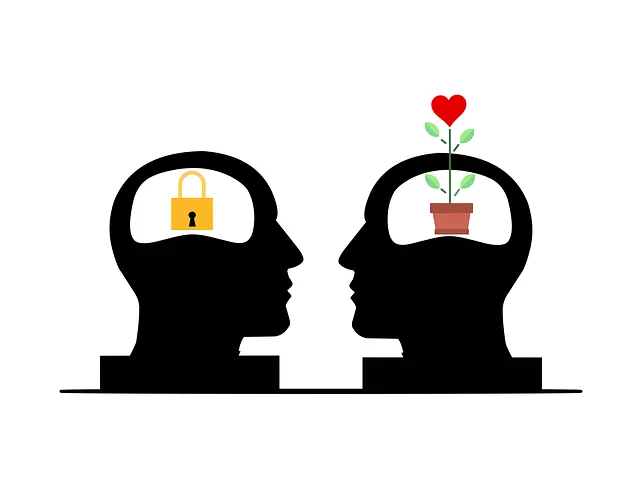Kaiser Permanente mental health Highlands Ranch prioritizes cultural sensitivity in its services, recognizing diverse communities' unique mental healthcare needs. Through staff training, holistic practices, and culturally tailored therapies, they bridge gaps and empower patients. This inclusive approach, focusing on understanding customs and historical contexts, improves patient outcomes and creates a supportive environment for all.
Cultural sensitivity is a cornerstone of effective mental healthcare, ensuring equitable access and positive outcomes for diverse populations. This article explores the vital role of cultural competence in addressing the unique needs of patients from various backgrounds. We delve into best practices, examining real-world examples like Kaiser Permanente’s successful approach to serving diverse communities. Additionally, we highlight the impact on patient care at Highlands Ranch, demonstrating how cultural sensitivity drives better mental health outcomes.
- Understanding Cultural Sensitivity in Mental Healthcare
- Kaiser Permanente's Approach to Diverse Populations
- Overcoming Barriers: Challenges in Mental Health Care for Different Cultures
- Best Practices for Culturally Sensitive Therapy Sessions
- The Impact of Cultural Competence on Patient Outcomes at Highlands Ranch
Understanding Cultural Sensitivity in Mental Healthcare

Cultural sensitivity is a cornerstone in delivering effective mental healthcare services, especially within diverse communities like those served by Kaiser Permanente mental health Highlands Ranch. It involves recognizing and appreciating the unique cultural backgrounds, beliefs, and values of every individual who seeks support for their mental well-being. This approach ensures that treatment plans are tailored to align with patients’ cultural identities, fostering trust and encouraging open communication.
Incorporating cultural sensitivity requires a deep understanding of various cultural contexts, including customs, traditions, and historical experiences that might influence an individual’s perception of mental health and healing. For instance, public awareness campaigns development around emotional regulation and trauma support services can significantly impact communities by promoting cultural sensitivity in mental healthcare practices, ultimately enhancing access to care and improving patient outcomes.
Kaiser Permanente's Approach to Diverse Populations

Kaiser Permanente, a renowned healthcare organization, recognizes the importance of addressing cultural sensitivity in mental health services. Their approach to serving diverse populations, particularly in the context of Kaiser Permanente mental health Highlands Ranch, is a model for inclusive care. By prioritizing empathy building strategies and emotional well-being promotion techniques, they aim to bridge cultural gaps and ensure every patient receives tailored support.
The organization equips its healthcare providers with burnout prevention strategies, acknowledging the impact of cultural nuances on their own emotional well-being. This proactive measure not only enhances the quality of care but also fosters a supportive environment where mental health professionals can thrive while serving a diverse range of patients.
Overcoming Barriers: Challenges in Mental Health Care for Different Cultures

Mental healthcare practices often face significant barriers when attempting to serve diverse cultural communities. The unique beliefs, values, and communication styles of various cultures can create challenges that hinder effective treatment. For instance, individuals from non-Western backgrounds may have different perceptions of mental illness, seeking help through traditional healing methods rather than conventional therapy. This discrepancy in understanding can lead to mistrust and a reluctance to engage with Western psychiatric practices.
In the case of the Kaiser Permanente mental health services in Highlands Ranch, Colorado, overcoming these cultural barriers is essential to ensure equitable care. The organization could implement initiatives like cultural competency training for staff, promoting awareness about diverse therapeutic approaches. Additionally, offering self-care routine development workshops and stress management programs inspired by cultural traditions can foster a sense of belonging among patients from different backgrounds. Encouraging positive thinking and holistic well-being practices can also bridge the gap, making mental healthcare more accessible and acceptable to all communities.
Best Practices for Culturally Sensitive Therapy Sessions

In culturally sensitive therapy sessions, therapists at Kaiser Permanente mental health Highlands Ranch prioritize understanding and respecting clients’ backgrounds, beliefs, and values. This involves actively listening to clients’ experiences, validating their cultural identities, and adapting therapeutic techniques accordingly. For instance, incorporating cultural elements from the client’s heritage in discussions or activities can foster a sense of safety and engagement, enhancing treatment outcomes.
Best practices also include promoting inner strength development by empowering clients with coping strategies tailored to their cultural contexts. Additionally, implementing successful Community Outreach Program Initiatives allows therapists to connect with diverse communities, offering Mental Health Education Programs designed to address unique cultural challenges. This holistic approach ensures that therapy sessions are inclusive and effective, catering to the specific needs of each client.
The Impact of Cultural Competence on Patient Outcomes at Highlands Ranch

At Highlands Ranch, Kaiser Permanente’s mental health services have recognized the profound impact of cultural sensitivity on patient outcomes. By integrating culturally competent practices, the healthcare provider aims to create a welcoming and understanding environment for diverse patient populations. This approach is especially significant in addressing the unique challenges faced by individuals from various ethnic, racial, and cultural backgrounds when seeking mental health support.
The benefits are far-reaching; culturally sensitive care enhances patient engagement, leading to improved treatment adherence and better overall outcomes. For example, therapists at Kaiser Permanente Highlands Ranch tailor their approaches to consider patients’ personal beliefs, values, and experiences, fostering a deeper connection and encouraging the development of essential coping skills. This individualized attention not only boosts confidence but also enables patients to integrate self-care routines tailored to their specific needs, thereby promoting long-term mental health and well-being.
Cultural sensitivity in mental healthcare is no longer a consideration—it’s a necessity. As organizations like Kaiser Permanente prioritize diverse population care, the impact of cultural competence becomes evident in improved patient outcomes. In Highlands Ranch and beyond, integrating best practices for culturally sensitive therapy sessions directly enhances the effectiveness of treatment. By overcoming barriers and embracing the richness of different cultures, mental healthcare professionals can foster stronger connections with patients, ultimately leading to more positive and lasting results.






